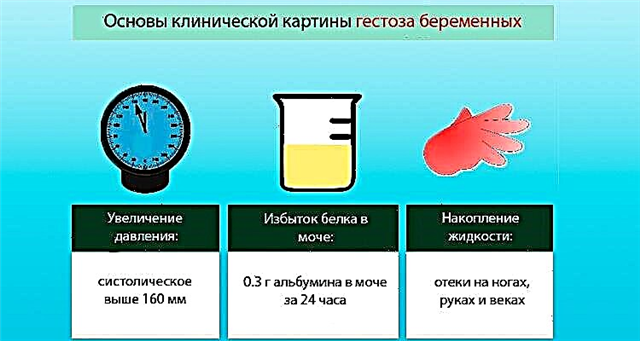One of the common symptoms of respiratory diseases is coughing. It appears in both children and adults. And it can be wet or dry. The latter, in most cases, is the body's response to the laryngeal inflammatory process.
Do not forget that a laryngeal cough is a protective reflex, and its elimination is not always required. It clears the bronchi from mucus, phlegm, foreign bodies and other irritating substances. Treatment is worth considering when it comes to dry cough, which has ceased to perform protective functions. It negatively affects the general condition, interferes with sleep, causes suffocation, and in some cases - vomiting.
Mechanism
 How does a cough appear? It all starts with a short and deep breath, which ends with a contraction of the laryngeal muscles. Thus, they block the vocal canal and contribute to an increase in bronchial muscles. Further, the opening of the passage takes place, followed by a sharp exhalation. In most cases, this phenomenon is involuntary and uncontrollable, but if necessary, it can be caused artificially.
How does a cough appear? It all starts with a short and deep breath, which ends with a contraction of the laryngeal muscles. Thus, they block the vocal canal and contribute to an increase in bronchial muscles. Further, the opening of the passage takes place, followed by a sharp exhalation. In most cases, this phenomenon is involuntary and uncontrollable, but if necessary, it can be caused artificially.
Doctors divide coughs into two main types - dry and wet.... The first harms the body by irritating the mucous membrane and tissues of the respiratory system. As for a wet cough, on the contrary, it helps to cleanse the body of harmful bacteria.
Dry throat cough. Causes of occurrence
In fact, there are many factors that cause such a reaction in the body, but the following can be called the main ones:
- Smoking. Even healthy, but smokers often cough. The main reason is nicotine tar. They irritate the receptors and the mucous membrane, causing involuntary coughing fits.
 Colds and colds are another important factor. A decrease in immunity and protective functions of the body contributes to the penetration of infection into the bronchi. As a result, a cough appears.
Colds and colds are another important factor. A decrease in immunity and protective functions of the body contributes to the penetration of infection into the bronchi. As a result, a cough appears.- Chronic pharyngitis is always accompanied by a sore throat and severe coughing fits.
- Bronchial asthma and whooping cough. If attacks bother a person at night, but do not appear during the day, this indicates diseases such as bronchial asthma, as well as whooping cough.
- A constant companion of allergies is a dry cough. It is not treated as it is seasonal.
Specifications
 To cure a cough, you need to know about its main characteristics. Sore throat and decreased (hoarseness) of the voice are key symptoms. The process itself occurs when the mucous membrane and the cough receptor are irritated. Knowing the following factors will help you quickly recognize the stage of the disease and overcome it:
To cure a cough, you need to know about its main characteristics. Sore throat and decreased (hoarseness) of the voice are key symptoms. The process itself occurs when the mucous membrane and the cough receptor are irritated. Knowing the following factors will help you quickly recognize the stage of the disease and overcome it:
- its duration;
- type (acute or chronic);
- voiced or muffled;
- amplification time;
- volume;
- appearance (wet / dry).
Treatment
Many have heard about various methods of treating cough, but a dry throat cough still does not know how to treat it. Traditional medicine is able to offer a wide range of drugs:
- Antitussive drugs effectively inhibit the process itself ("Bitiodin", "Codeine" and so on).
- Mucoregulatory medications are used to restore the viscosity of sputum and optimize mucuciliary balance ("Lysine salt", "Carbocisteine").
 Mucolytic drugs help to soften and remove sputum from the body (Bromhexin, Ambroxol and others).
Mucolytic drugs help to soften and remove sputum from the body (Bromhexin, Ambroxol and others).
But do not immediately fly to the pharmacy for the above medicines. Perhaps a time-tested remedy such as inhalation will work for you. It is the safest and most effective therapeutic method and is excellent for pregnant and lactating women.
Inhalation allows you to gently reduce the sensitivity of the tissues of the mucous membrane and remove irritation of the cough center.
Folk methods
Dry cough treatment requires special, and not always traditional methods, it can be overcome using traditional medicine. Again, this can include inhalations, but based on medicinal herbs, as well as regular gargling.
Drinking warm milk with honey and butter is another equally effective remedy. In addition, tea with raspberry jam and linden leaves helps to relieve irritation and swelling of the mucous membrane.
Burnt sugar
 Such a remedy belongs to the category of traditional medicine, but at the same time it is highly effective. So, how to properly prepare burnt sugar to help relieve coughing fits? First, let's boil water and find a pan with a capacity of at least one liter (more is possible). Then you need to add 3 tablespoons of sugar to an empty saucepan and put on low heat.
Such a remedy belongs to the category of traditional medicine, but at the same time it is highly effective. So, how to properly prepare burnt sugar to help relieve coughing fits? First, let's boil water and find a pan with a capacity of at least one liter (more is possible). Then you need to add 3 tablespoons of sugar to an empty saucepan and put on low heat.
The sugar will begin to melt and turn into caramel. Do not forget to periodically stir the viscous mass with a spoon so that no foam forms and bubbles come out. Next, pour boiling water into a saucepan with caramel (proportion - 2/3) and boil for several minutes.
At the final stage, the solution is cooled to room temperature and poured into dishes. Moreover, it has a limited shelf life - it is stored in a warm place for no more than two weeks.
Add 3 tablespoons of the solution to your tea at least three times a day. You will notice how, after a few days of taking the cough, the cough subsides and subsequently stops altogether.
How and what to treat a child's laryngeal cough
 When children cough, parents instantly panic. But before starting treatment, you need to deal with the source of the cough. It is quite difficult to do this on your own, unless, of course, you are an expert. Your doctor will help you understand the cause.
When children cough, parents instantly panic. But before starting treatment, you need to deal with the source of the cough. It is quite difficult to do this on your own, unless, of course, you are an expert. Your doctor will help you understand the cause.
A child's body is much weaker than that of an adult, and coughing spells cause more discomfort in children. Medicines are more gentle for them. But, if the attacks persist, stronger drugs may be prescribed. For dry coughs in children, doctors prescribe anti-inflammatory drugs. As a rule, we are talking about syrups, for example, "Lazolvan" or "Doctor IOM".
If a bacterial disease is diagnosed, doctors recommend taking Biseptol and other similar medications. In case of acute pain, therapy is supplemented with drugs such as Nurofen or Panadol. With regard to antibiotics, their use must be approved by the doctor. Self-activity in this case is not appropriate and harmful.
Useful Tips
 If you are tormented by bouts of dry cough, and there are no medications at hand, do not be discouraged. To cope with the painful syndrome in children and adults when coughing, the following helpful tips will help:
If you are tormented by bouts of dry cough, and there are no medications at hand, do not be discouraged. To cope with the painful syndrome in children and adults when coughing, the following helpful tips will help:
- If there is no fever, take a hot shower or bath.
- Gargle with saline or herbal decoctions.
- Drink hot (but not scalding) milk or tea.
- Use water vapor inhalation.
- Take cough drops.
To avoid the negative effects of dry cough attacks, do not self-medicate. The most appropriate solution is to visit a doctor. Only he can reliably name the cause of the cough and choose the optimal rehabilitation scheme.

 Colds and colds are another important factor. A decrease in immunity and protective functions of the body contributes to the penetration of infection into the bronchi. As a result, a cough appears.
Colds and colds are another important factor. A decrease in immunity and protective functions of the body contributes to the penetration of infection into the bronchi. As a result, a cough appears. Mucolytic drugs help to soften and remove sputum from the body (Bromhexin, Ambroxol and others).
Mucolytic drugs help to soften and remove sputum from the body (Bromhexin, Ambroxol and others).

